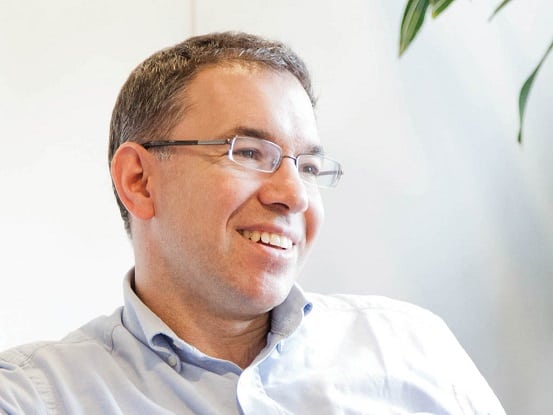Spend an hour with Investec’s Alastair Mundy and you come away with two conclusions about contrarian investing: all and sundry think they do it, but few understand how to make it a success.
As lead manager on the £2bn Investec Cautious Managed, UK Special Situations and Temple Bar Investment Trust – among others – Mundy certainly has many plates to spin, but it is his role as head of the ten-strong contrarian team that most defines him.
Defining contrarian
Mundy formed the team on joining Investec from Morley Fund Management in 2000, where he made his name as an income manager. His approach is to select stocks that are seen as out-of-favour – the universe in the UK is stocks that have fallen 50% from their peak over the past seven years.
He says: “Contrarian is a horribly over-used word now and everyone claims to be contrarian. I think it is popular because if you do not call yourself contrarian then you are consensual, which is the world’s worst put-down.
“As everyone now calls themselves contrarian, you have to define what it means.
“Historically, being contrarian means looking at out-of-favour stocks, but everyone now thinks it means saying something different. For us, that is making up a definition to create a label.”
The same goes for special situations funds, a tag Mundy says groups funds together that have very little in common in terms of holdings and philosophy.
He has been in charge of the £570m UK Special Situations Fund since 2002 – it has been running since 1978 – while in late 2007, Global Special Situations was launched with co-manager Mark Wynne Jones.
Global fear
For this fund, the universe differs in that it seeks stocks that have moved furthest away from their average price.
Says Mundy: “Since we have built up the contrarian team, we have had more of a global reach. We just look for out-of-favour stocks which pop up everywhere. All investors are affected by fear and greed; it is not just a UK phenomenon.
“Still, the majority of our assets are in the UK, though in five or ten years it will be more global. We hope our worldwide strategy will grow, and we will also continue to look for more opportunities internationally, in funds such as Cautious Managed, than we have done historically.”
Mundy and his team are renowned for their disregard for macro concerns in favour of a pure bottom-up approach to stockpicking. Still, that does not mean his portfolios are completely immune to economic influences.
“Stocks sometimes fall into our lap because people have an extreme view on the macro, but it is these macro problems that find us rather than us going looking for them.”
Diversified holdings
For example, five years ago it was probably just one or two banks that had problems, but now the whole sector is under siege. However, Mundy stresses that his portfolios are well diversified in nature, given how long they have been run with stocks bought at different times and for different reasons.
Long-term strategy
A quick glance through his holdings and there are names that strike you as consensual: HSBC is his only major banking stock, while Royal Dutch Shell, GSK and Vodafone are other top-weighted names in his funds.
Still, in many ways Mundy considers this a reflection of the lack of understanding of his contrarian approach, where an average holding period for a stock is between three and five years.
“People often look at our stocks and say ‘well, that is not very contrarian’, but we only make our money when everyone agrees with us and we cannot just be a contrarian forever and buy stocks that are going down, otherwise you will lose a lot of money,” he explains.
“The idea is to buy it when it is contrarian and everyone else is selling it; you stick with it while everyone agrees with you up to fair value, and then flog it to people who want to hold it and ride the momentum.”
Nominal trading
Newer contrarian ideas that have either been bought or considered for the funds this year include IAG, Homeserve, Segro, Hays and Man Group.











